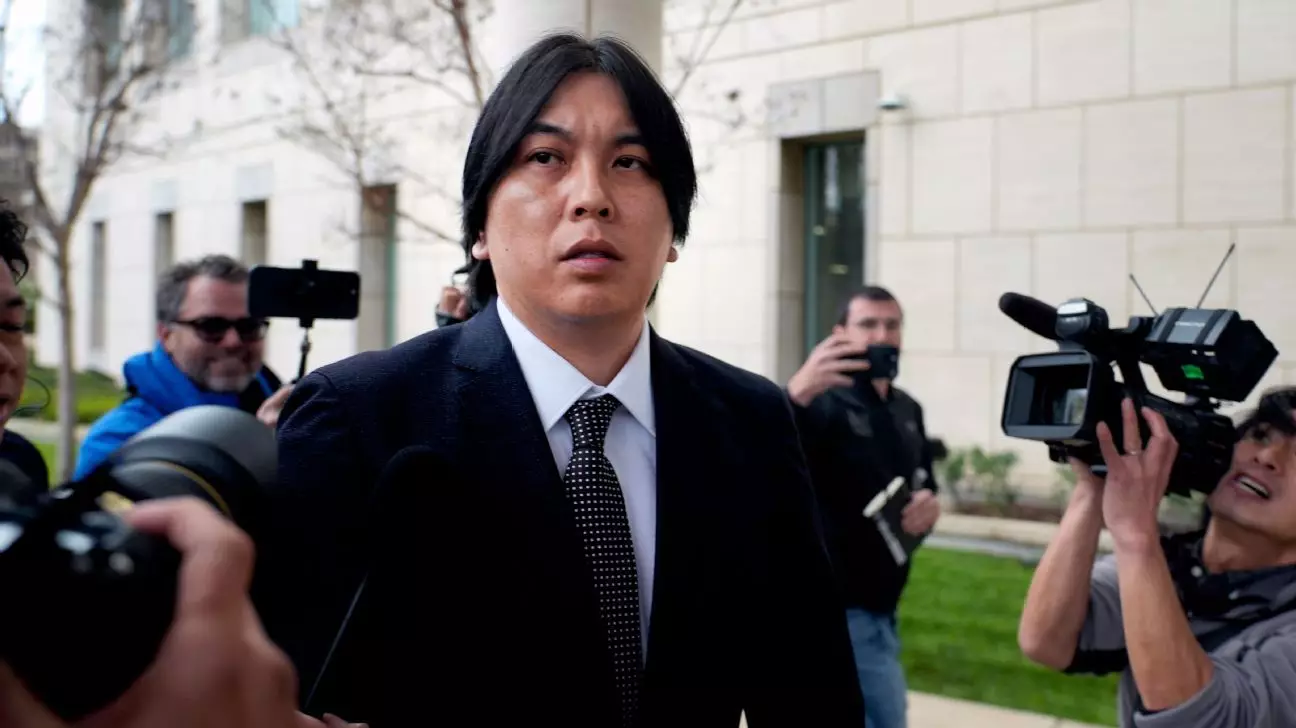The case of Ippei Mizuhara serves as a sobering reminder of how trust can be fundamentally betrayed within the high-stakes world of professional sports. Once esteemed as the interpreter for Los Angeles Angels superstar Shohei Ohtani, Mizuhara was recently sentenced to nearly five years in prison for stealing an astonishing $17 million from the athlete to pay off gambling debts. Mizuhara’s actions not only devastated Ohtani financially but also reflected a deeper narrative about addiction, betrayal, and the consequences of using privilege for personal gain.
A Shocking Breach of Trust
In a courtroom session filled with emotional weight, Mizuhara expressed remorse, stating, “I want to say I am truly sorry to Mr. Ohtani for what I have done.” However, the severity of his actions, which resulted in a 57-month sentence and a hefty restitution obligation, raises questions about the credibility of such apologies. Judge John W. Holcomb pointed out that the amount Mizuhara stole is more than most individuals earn in a lifetime, highlighting the severity of this financial betrayal. The combination of his unique position of trust within the organization and the monumental loss inflicted upon Ohtani composes a tragic story of misplaced loyalty.
Although Mizuhara’s plea of guilt and sentiment of remorse might seem sincere, it does not erase the betrayal felt by Ohtani, who viewed Mizuhara not just as an employee but as a confidant and friend. The intensity of this betrayal magnifies the emotional stakes, making it difficult to accept an apology without addressing the profound ramifications of Mizuhara’s choices.
Mizuhara’s defense centered around his enduring battle with gambling addiction, which his attorney argued warranted a lesser sentence. There is no doubt that addiction can lead individuals down troubling paths, yet the evidence presented indicated that Mizuhara’s gambling habits may have significantly escalated once he began stealing from Ohtani. The court highlighted his pattern of transferring money to illegal bookmakers and placing nearly 19,000 bets over two years, culminating in an overwhelming debt of over $40 million.
The juxtaposition of Mizuhara’s gambling addiction against the backdrop of Ohtani’s successful career provides a glimpse into how high-profile lifestyles can inadvertently enable harmful behaviors. In Mizuhara’s case, what should have been a rewarding professional opportunity morphed into a tragic downfall, illustrating how addiction can manipulate even the most trusted individuals into unethical actions.
As Mizuhara prepares to serve his 57-month sentence, the repercussions of his actions reverberate far beyond punitive measures. His behavior has not only tarnished his reputation but has also instigated a major breach of trust in a sports community that relies heavily on loyalty and integrity. The fact that he will likely face deportation further emphasizes the drastic transition from a respected professional to a criminal sentence, encapsulating the losses that can accompany gambling addiction and betrayal.
As public awareness of gambling addiction grows, it’s crucial to address its implications in sports and beyond. While many may sympathize with Mizuhara’s plight as an addict, it does not absolve him of his wrongdoing. The industry must remain vigilant about fostering environments that discourage such misconduct, while also providing support for individuals struggling with addiction.
The story of Ippei Mizuhara is a cautionary tale that underscores the complexities of trust, responsibility, and the devastating impacts of addiction. While Mizuhara is left to reckon with his choices behind bars, the psychological and financial fallout for Shohei Ohtani is likely to linger well beyond the courtroom. As fans and stakeholders in sports continue to navigate an evolving landscape, Mizuhara’s case serves as a potent reminder that even amidst the brightest careers, shadows can loom, and the betrayal of trust can have far-reaching consequences. The challenge lies in ensuring that such preventable tragedies are addressed, and that support systems are reinforced to curb the tide of addiction in sports and society at large.


Leave a Reply